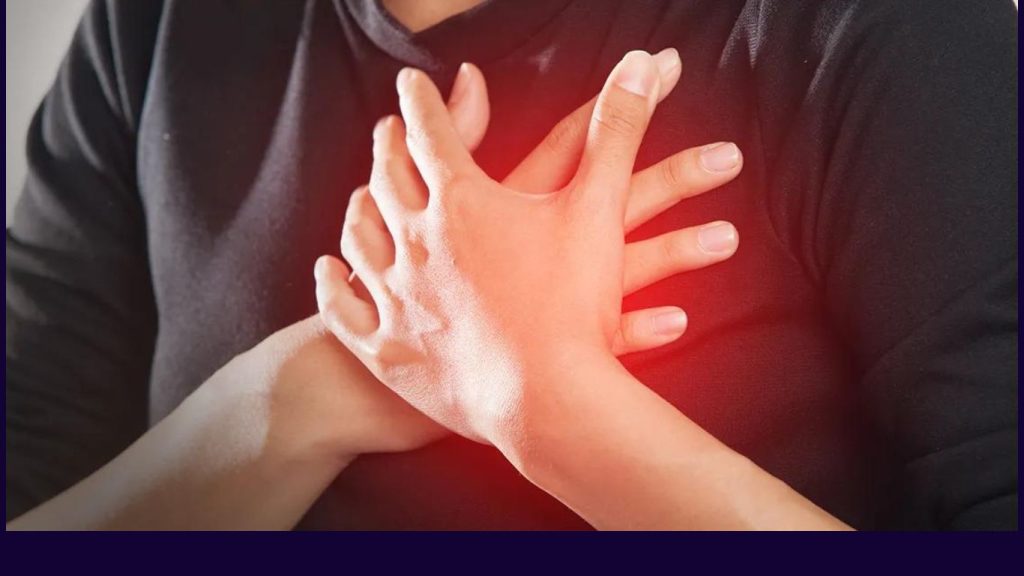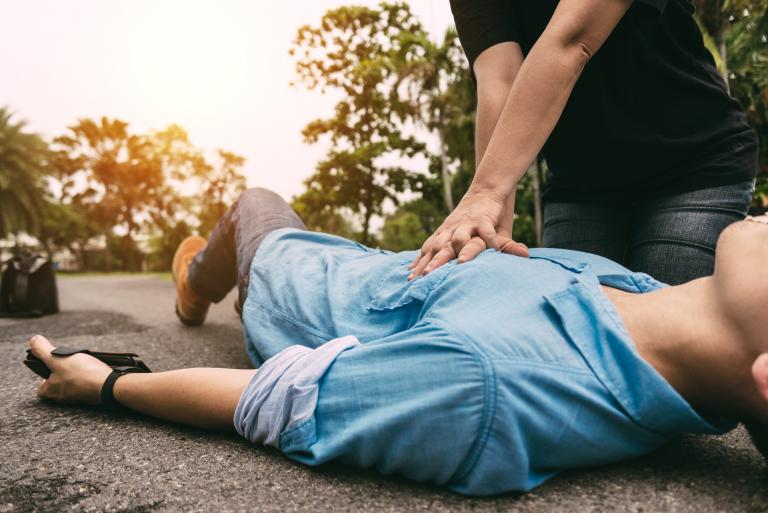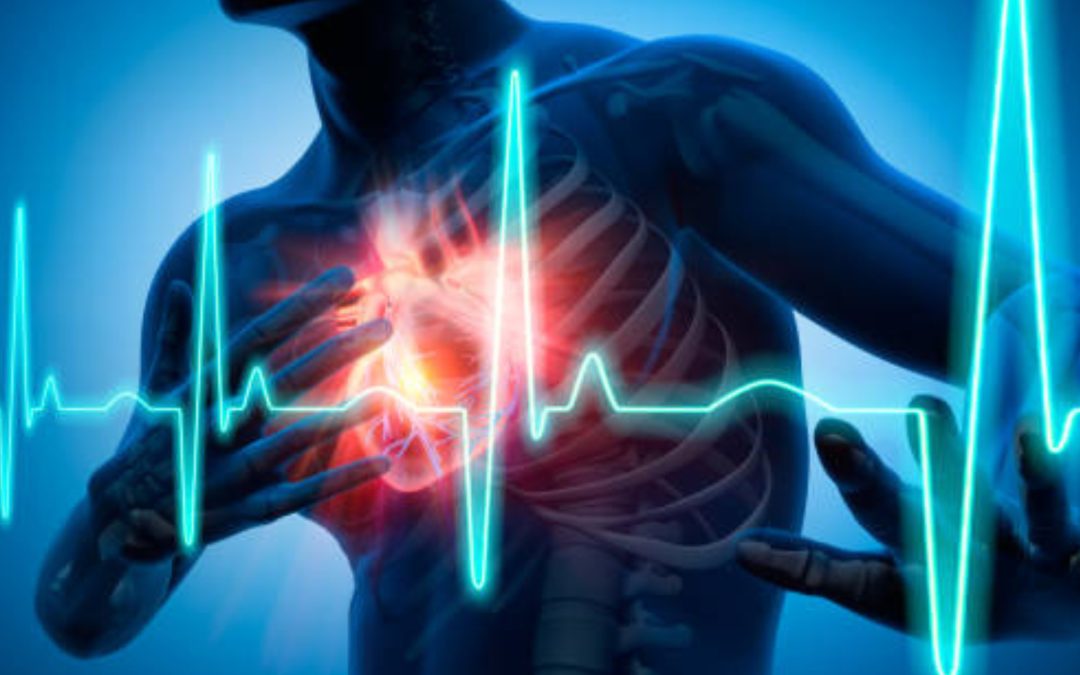Sudden cardiac arrest is not a heart attack. It occurs silently and halts the heart beating. And it may lead to immediate loss of heart function, breathing, and consciousness. It requires immediate treatment. Otherwise, it can lead to death.
As per the stats, around 4-5 million sudden cardiac arrest cases occur every year worldwide.
One of the common issues of sudden cardiac arrest is a silent and sudden attack. Many people are not aware of its causes, and steps to take immediately.
Here, we will learn about sudden cardiac arrest, its symptoms, causes, and steps to take suddenly. So that the next time you can take immediate care and increase their survival possibilities.
What is Sudden Cardiac Arrest?
It is a life taking heart condition that occurs silently and suddenly. In this situation, your heart stops beating and causes loss of breathing and consciousness. This condition is not the same as a heart attack. Whereas, the electrical activities of your heart are impacted. When a sudden cardiac occurs, a person loses consciousness and requires immediate treatment. Otherwise, it leads to death in minutes. Did you know? Around 90% of individuals suffering from this condition die immediately. It is considered one of the highest of all medical emergencies.
Signs and Symptoms of Sudden Cardiac Arrest

Sudden cardiac arrest occurs silently and suddenly without giving any warning. So, here are the key signs and symptoms you should look out for:
1. Sudden Collapse
When a cardiac arrest occurs, then a person will immediately collapse and fall unconscious without any prior warning.
2. No Breathing
Another common sign is when a person stops breathing suddenly or may exhibit an abnormality that indicates a cardiac arrest.
3. Loss of Consciousness
A person can lose consciousness immediately when a cardiac arrest occurs. Because blood flow stops in the brain.
4. No Pulse
When a heart suddenly stops beating, it leads to the absence of a detectable pulse.
Now, the question arises: Are there any early signs to detect SCA earlier? The answer is yes.
Some Possible Warning Signs Before Sudden Cardiac Arrest
Some early warning signs to detect includes:
- If a person has chest pain or discomfort, they get a similar feeling of heart attack and pressure.
- If a person finds it difficult to breathe suddenly. It is a sign of cardiac arrest.
- When a person feels a rapid or irregular heartbeat. It is a sign of SCA.
- If a person feels faint due to a sudden drop in blood pressure, then it is a warning sign.
You may recognize cardiac arrest by noting the following signs
Mention Heart Conditions leading to Sudden Cardiac Arrest
Major heart conditions leading to sudden cardiac arrest are:
1. Coronary Artery Disease: This cause occurs when the heart blood supply is clogged with cholesterol. It reduces blood flow.
2. Heart Valve Disease: When valve narrowing or leaking can strain the heart. It results in heart muscle enlargement. This increases the risk of SCA.
3. Congenital Heart Defects: If there are any structural heart problems at birth, this impacts your heart functioning. This can be a cause of cardiac arrest.
4. Heart Attack: During the heart attack, the electrical signals of your heart get damaged.
5. Cardiomyopathy: When your heart muscle stretches or thickens, such a condition occurs. This can interrupt the heart’s electrical system.
6. Severe Physical Stress: When a person takes extreme physical or emotional stress, it can release the adrenaline. It can cause SCA.
7. Electrical Abnormalities: It is a disorder like Brugada syndrome that can affect the electrical activity of your heart. Further, it may cause cardiac arrest.
Risk Factors of Sudden Cardiac Arrest
Some common risk factors of sudden cardiac arrest are:
- A family history of coronary artery disease
- High blood pressure
- High blood cholesterol
- Inactive lifestyle
- Obesity
- Smoking
- Previous heart attack
- Obstructive sleep apnea
- Diabetes
- Male predominance
- Intake of illegal drugs
Things You Must Do During a Sudden Cardiac Arrest
If a person goes into a cardiac arrest, you must take immediate actions to save a life.
First, call for medical help. Further, start giving CPR for chest compressions or mouth to mouth CPR to maintain oxygen and blood flow until medical help arrives.

If there is an automated external defibrillator available, then use it because a person can be saved from sudden cardiac arrest with CPR and a defibrillator combined. It increases the chances of survival time.
Once the medical help arrives, a person will receive antiarrhythmic medication via IV in the arms to reduce the electrical rhythm of a person’s heart. A successful defibrillation is required to recuperate sudden cardiac arrest effects. Further, it prevents heart issues.
How to Reduce Sudden Cardiac Arrest
Some useful tips are:
- Stick to a well-balanced diet
- Regular exercise is important
- Avoid smoking and alcohol consumption
- Control your cholesterol levels
- Keep monitoring blood sugar and maintain it
- Consider frequent health check ups with healthcare provider
Read Also : Cardiology: An Overview of Common Heart Conditions
Conclusion
Sudden cardiac arrest is a life threatening event. Thus, doctors recommend a healthy lifestyle. Healthy habits reduce such risk factors. These conditions may lead to death without any prior warnings. If someone around you is experiencing such a situation, they require immediate care within minutes. Thus, awareness amongst the people is important. We hope this guide helped you know everything about cardiac arrest. We also discussed some best ways to prevent it. However, it is recommended to consult with the best cardiologist specialists in Charlotte to get a quick check up.
FAQs
Yes, it is possible to survive it. You need to receive immediate medical care within 2 to 3 minutes.
Yes, there are chances of cardiac arrest even for a healthy person. However, it is rare to happen in young people.
You should immediately call for medical care and immediately start CPR via pushing hard and fast on the person’s chest, around 100 to 120 pushes a minute, or doing mouth to mouth every 30 compressions.
There are various fruits to keep a healthy heart. Such as oranges, blueberries and avocados.

